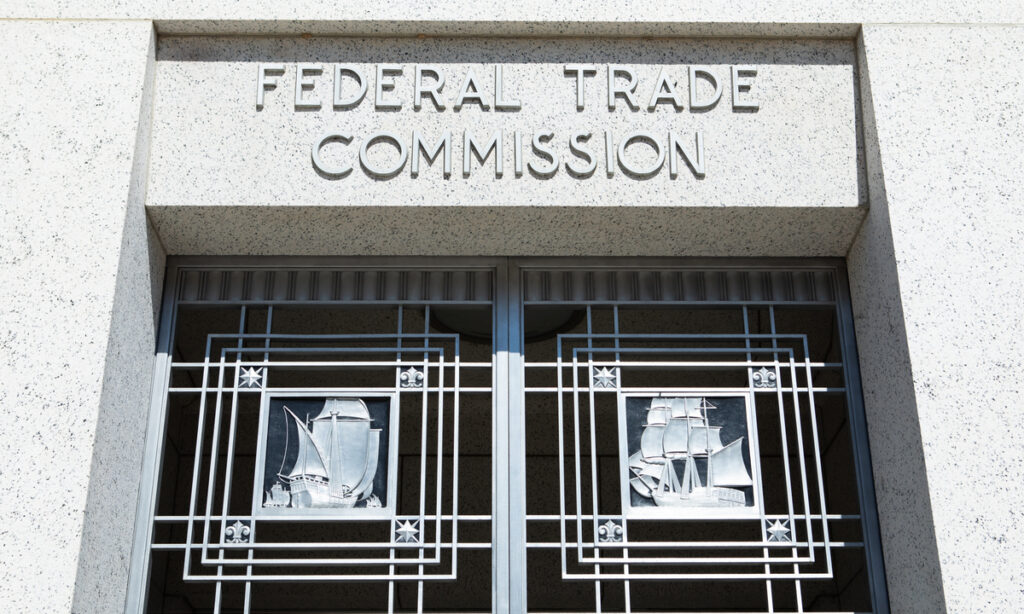The Department of Justice and the Federal Trade Commission (FTC) are preparing to open antitrust investigations into Microsoft, OpenAI, and NVIDIA, The New York Times reported on Wednesday.
These tech giants have driven innovation in artificial intelligence (AI), but they are facing new scrutiny as regulators examine whether their dominance is stifling competition in an industry poised to digitally transform millions of companies.
“It's not official yet, but there are reports that the Department of Justice and the FTC have agreed to investigate AI companies,” antitrust lawyer Omar Ochoa told PYMNTS. “The DOJ will reportedly investigate Nvidia, and the FTC will investigate OpenAI and Microsoft. This is actually very similar to what the FTC did against the big tech companies a few years ago, when it split off investigations into Google, Apple, Amazon, and Meta. Antitrust cases were filed against each of the companies.”
Ochoa said he thinks history could repeat itself in the AI industry.
“Now, if we see this happening again with AI, it's likely that we'll see some kind of investigation and some kind of litigation or administrative action because this is similar to what happened with the big tech companies a few years ago,” he said.
“If these companies are found guilty of antitrust violations, it could be truly game-changing for both the tech and AI industries,” Alon Solomon, attorney and chief strategy officer at legal services firm Amplify, told PYMNTS. “We could see these giants broken up or have their wings clipped, allowing smaller companies and new entrants to emerge and shake up the game.”
Solomon also noted that such rulings could force companies to rethink their business practices and partnerships, with ripple effects on everything from supply chains to pricing and the availability of technology services and products.
“Companies may have to reassess their plans and think about how to play nicely with others,” he said.
The Department of Justice takes the lead
This antitrust tag-team showdown pits the Department of Justice against Nvidia, the largest maker of AI chips, while the FTC goes head-to-head with OpenAI, the company behind the ChatGPT chatbot, and Microsoft, which has poured billions of dollars of monopoly-like money into the AI movement.
But if the government wants to win these antitrust cases, it will need to go to great lengths to prove that these companies have intentionally stifled their rivals.
“The government needs to provide the receipts and show how these companies have aggressively tried to crush competition,” Solomon said. “It's an uphill battle, but not an impossible one. It all depends on the details of the case, the legal issues and the regulatory environment.”
AI under a microscope
These investigations are just the latest in a series of antitrust investigations targeting major technology companies around the world. Regulators in the U.S. and European Union are leaving no stone unturned in their quest to understand whether AI companies are using their power to monopolize markets or squeeze out competitors. The outcomes of these investigations will shape the future of competition and innovation in the AI industry.
In terms of the potential impact on commercial activity, the risks are high.
“Comments from Congress, the White House, the FTC and the Department of Justice all indicate that they are looking to get ahead of AI advances and begin enforcement actions and oversight early, as opposed to waiting several years down the line and waiting for developments that will make it harder to reverse the business practices that have led to its significant growth,” Ochoa explained. “Judging from the comments, I don't think the goal is to eradicate AI and its development, but to regulate it early so that it doesn't become an unregulated industry that will be difficult to regulate in the future.”
If the AI giants were broken up or their powers limited, it could be the perfect opportunity for smaller companies and startups to swoop in and take them on, which could make AI products and services cheaper and more accessible to businesses and consumers.
However, if investigations prove fruitless or penalties are light, AI giants could continue to tighten their grip on the market, leaving competition and innovation behind. This could mean higher prices, less choice, and a slower pace of progress in the development and adoption of AI technologies across sectors of the economy.
As for the government's chances of succeeding in these cases, Ochoa remained cautious.
“It's difficult to predict the outcome at this stage, as the companies under investigation are major players in AI development, so it's difficult to predict the government's response or any lawsuits they may bring,” he said. “But it's clear that the investigation is ongoing, and the industry will be eagerly awaiting further developments.”
 Read more: AI , Antitrust , Alon Solomon , Artificial Intelligence , Department of Justice , Digital Transformation , Department of Justice , Federal Trade Commission , FTC , Department of Justice , Microsoft , News , NVIDIA , Omar Ochoa , OpenAI , PYMNTS News , Regulation , Technology , TechREG
Read more: AI , Antitrust , Alon Solomon , Artificial Intelligence , Department of Justice , Digital Transformation , Department of Justice , Federal Trade Commission , FTC , Department of Justice , Microsoft , News , NVIDIA , Omar Ochoa , OpenAI , PYMNTS News , Regulation , Technology , TechREG
Source link



